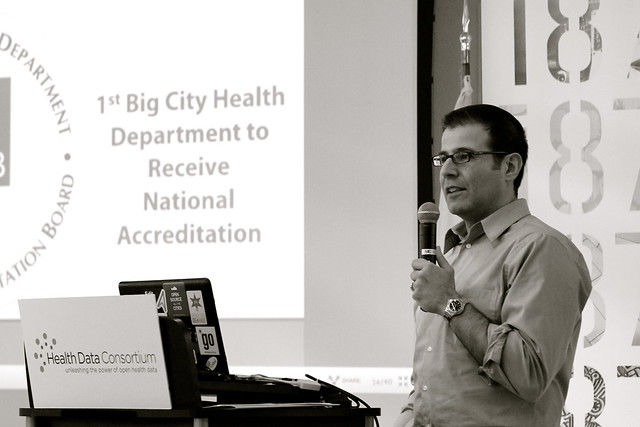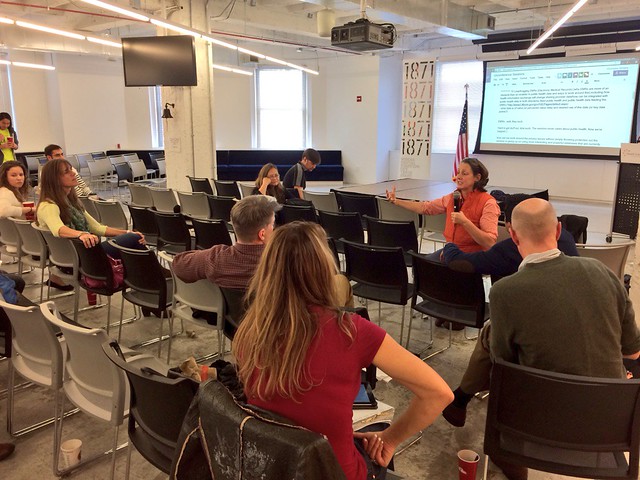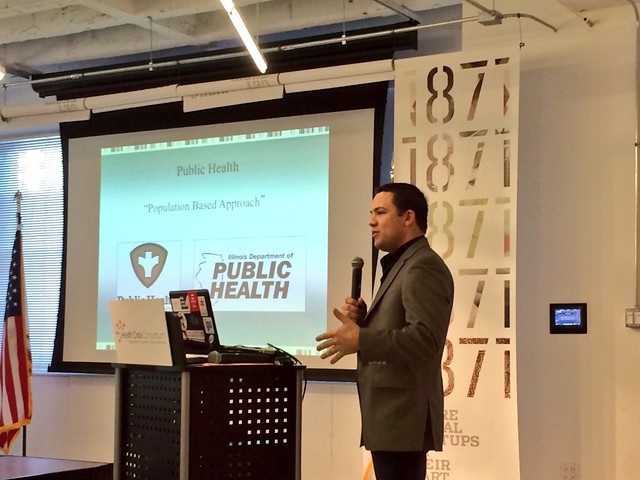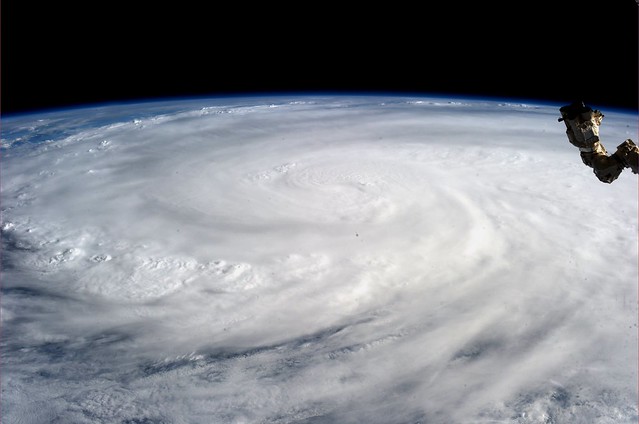
Raed Mansour Talking About a Day in the Life at the Chicago Department of Public Health at the Illinois Health Datapalooza at 1871 Chicago
For the second day of the “Making Public Health Data Work in Illinois” event, Smart Chicago helped to MC a Datapalooza event that brought together technologists and health care practitioners to put into practice the ideas discussed on day one.
The morning sessions were about sharing skills between technologists and health care practitioners. These included sessions from Socrata, ESRI, and a session on Healthdata.gov from Damon Davis. We also had sessions that focused on the daily challenges of providing health care including a “Day in the Life” session from Raed Mansour.
The afternoon sessions were geared towards brainstorming ideas for building health apps. You can see the different ideas (and notes for the whole day) on our on-going google doc.

Unconference session on leapfrogging electronic medical records
The Making Public Health Data Work Challenges
All this brainstorming around civic health apps leads up the the Making Public Health Data Work Challenges.
For the first challenge, The Illinois Department of Public Health, Department of Commerce and Economic Opportunity, and the Robert Wood Johnson Foundation are awarding $10,000 to the team that builds the app the provides the best use of health data in solving a problem faced by health care community in Illinois. There is an additional $5,000 being awarded for the runner-up. You can enter this challenge by filling out this entry form.
For the second challenge, Esri is offering a prize for the best app based on the Esri platform. The winner will get to choose from one of two prizes: a seat at the 2014 Esri Developer Summit, or a seat in an Esri instructor led online class. These prizes are both valued at approximately $1,000. Developers will be able to leverage Esri developer tools, e.g., the JavaScript API for cross-platform deployment, or the device-specific mobile SDKs for iOS and Android. You can enter this challenge by filling out this form.
Here are some guidelines for the challenge:
- The deadline for the challenge is November 30th.
- Entries must use health data either from a city, state, or federal source such as healthdata.gov.
- Web apps don’t necessarily have to be complete.
- Apps that have a better chance of becoming a real product used by healthcare practitioners or residents will be judged more highly.
If you have any questions about the challenge, feel free to ask us by emailing Christopher Whitaker.


